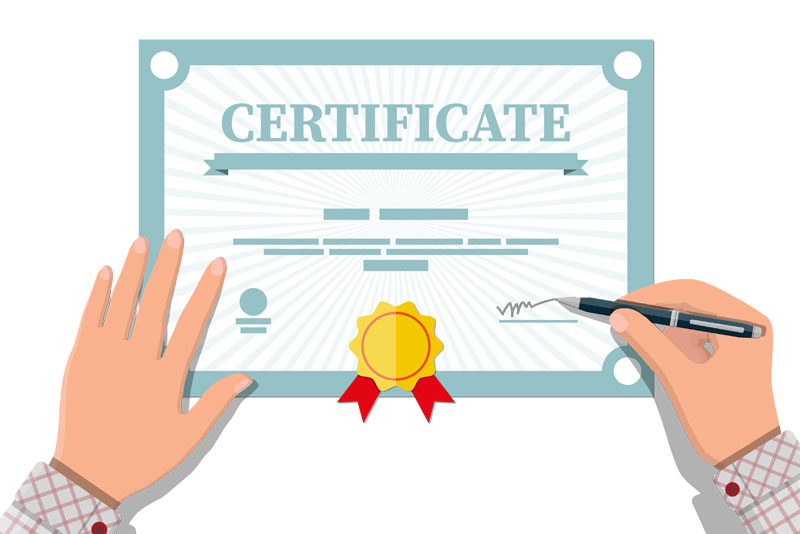A Certificate of Subsistence, which in some states is known as a Certificate of Good Standing, a Certificate of Existence, or a Certificate of Status, is a document from the state that verifies a business is indeed operating; is properly registered; and is in compliance with federal, state, and local laws.
While specific information varies from state to state, a Certificate of Subsistence often contains the following:
- The name and address of the business
- The name and address of the business’s registered agent, which is a person or company designated to receive legal correspondence on behalf of your business
- Confirmation that all federal, state, and local licenses and permits are up to date
- Confirmation that the company’s annual report (known by a different name in some states) has been filed and fees paid
- The business’s federal Employer ID Number (EIN) or Tax ID Number (TIN)
- Confirmation that all federal, state, and local taxes have been paid, including income tax, employment and unemployment taxes, self-employment tax, estimated taxes, and excise taxes
Only businesses that are registered with the state can obtain a Certificate of Subsistence, so if your business is a Sole Proprietorship or General Partnership, such a certificate is not applicable. A company doesn’t need a Certificate of Subsistence to conduct daily business but may be asked to provide one when attempting to conduct certain business activities.
Why Would a Business Need One?
There are a number of reasons a business would need a Certificate of Subsistence. Financial institutions often require one before permitting you to open a business bank account or set up an account that would enable to you process customer payments with debit or credit cards.
You’re also likely to need a Certificate of Subsistence to apply for a business loan or line of credit, or if you deal with a company that provides goods or services without requiring advance payment.
If you decide to expand your business into another state, you’ll need to register in that state as a foreign entity. Most states will require that you provide a Certificate of Subsistence from the state in which the business was formed before enabling you to register as a foreign entity.
Other circumstances in which you may need it include:
- To apply for a business credit card or debit card
- To buy business insurance
- To renew permits or licenses
- To contract with another business or a state agency
- To transfer ownership or sell all or part of your business
- To seek funds from potential investors
You’re most likely to need proof of a Certificate of Subsistence when your business is just starting up, as that’s the time you’ll be setting up bank accounts and conducting other important business activities.
How Does a Business Obtain a Certificate?
The process of obtaining a Certificate of Subsistence varies from state to state, but before you request one it’s vital to make sure your company is up to date on all taxes, reports, licenses, permits, and any other requirements.
Once you’ve confirmed compliance in all these areas, you typically contact the office of the Secretary of State or the equivalent office for your state. Most states allow you to request a Certificate of Subsistence online and will issue your certificate by email, often within a couple of hours. Mail-in requests will take longer, of course, so if you plan to apply by mail, make sure you leave time for your request to be processed and the certificate mailed to you before you’ll need it.
Also, keep in mind that financial institutions and some other entities may not accept a Certificate of Subsistence that’s not recently acquired. If possible, request the certificate shortly before you need it to avoid potential problems.
The cost of obtaining a Certificate of Subsistence depends on your state. Colorado does not charge a fee for a certificate, while Delaware charges more than $100. Most states charge between $10 and $35.
Why It’s Important
Having a Certificate of Subsistence on file is important because not doing so can prevent you from conducting important business activities like establishing bank accounts or expanding your business to another state. While the action of requesting a certificate isn’t difficult, making sure you’ve verified all compliances before doing so can be involved and complicated. You’re busy running a business, after all, and making sure you’ve completed everything necessary to obtain a Certificate of Subsistence is a lot to think about. If you’d rather concentrate on the reasons you started your business in the first place, CorpNet can work with you to take care of the rest.
Let CorpNet Help!
CorpNet will handle all the paperwork and filing to obtain a Certificate of Subsistence on your behalf. We provide fast and professional services across all fifty states.





